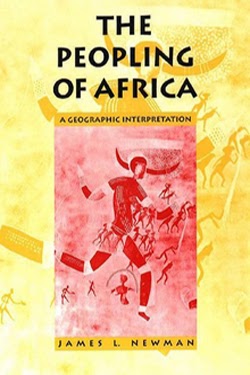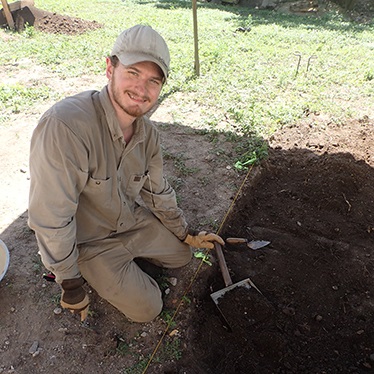The Peopling of Africa: A Geographical Interpretation
James L. Newman
Yale University Press, December 1995

Discovering the African past takes one on a journey back to the origins of humanity over four million years ago, which is where James Newman, professor emeritus of geography and the environment, begins his account of the continent's peoples. He ends it at the onset of the colonial era in the late 19th century, noting that "Africa and Africans deserve to be known on their own terms, and to achieve this goal we need to improve our understanding of what took place before colonialism rewrote many of life's rules."
African identities constitute one of Newman's main themes, and thus he discusses the roles played by genetic background, language, occupation and religion. Population distribution is the other main theme running through the book. As a geographer, the author uses regions, spaces and places as his filters for viewing how Africans have responded through time to differing natural and human environmental circumstances.
Drawing on the fields of biology, archaeology, linguistics, history, anthropology and demography, as well as geography, Newman describes the richness and diversity of Africa's inhabitants, the technological changes that transformed their lives, how they formed polities from small groups of kin to states and empires, and how they were influenced by external forces, particularly the slave trade. Maps are an important part of the book, conveying information and helping readers interrelate local, regional, continental, and global contexts.
Related News
Research

Apr 9, 2024
School News

Feb 15, 2024
School News

Oct 2, 2023
School News

Oct 2, 2023